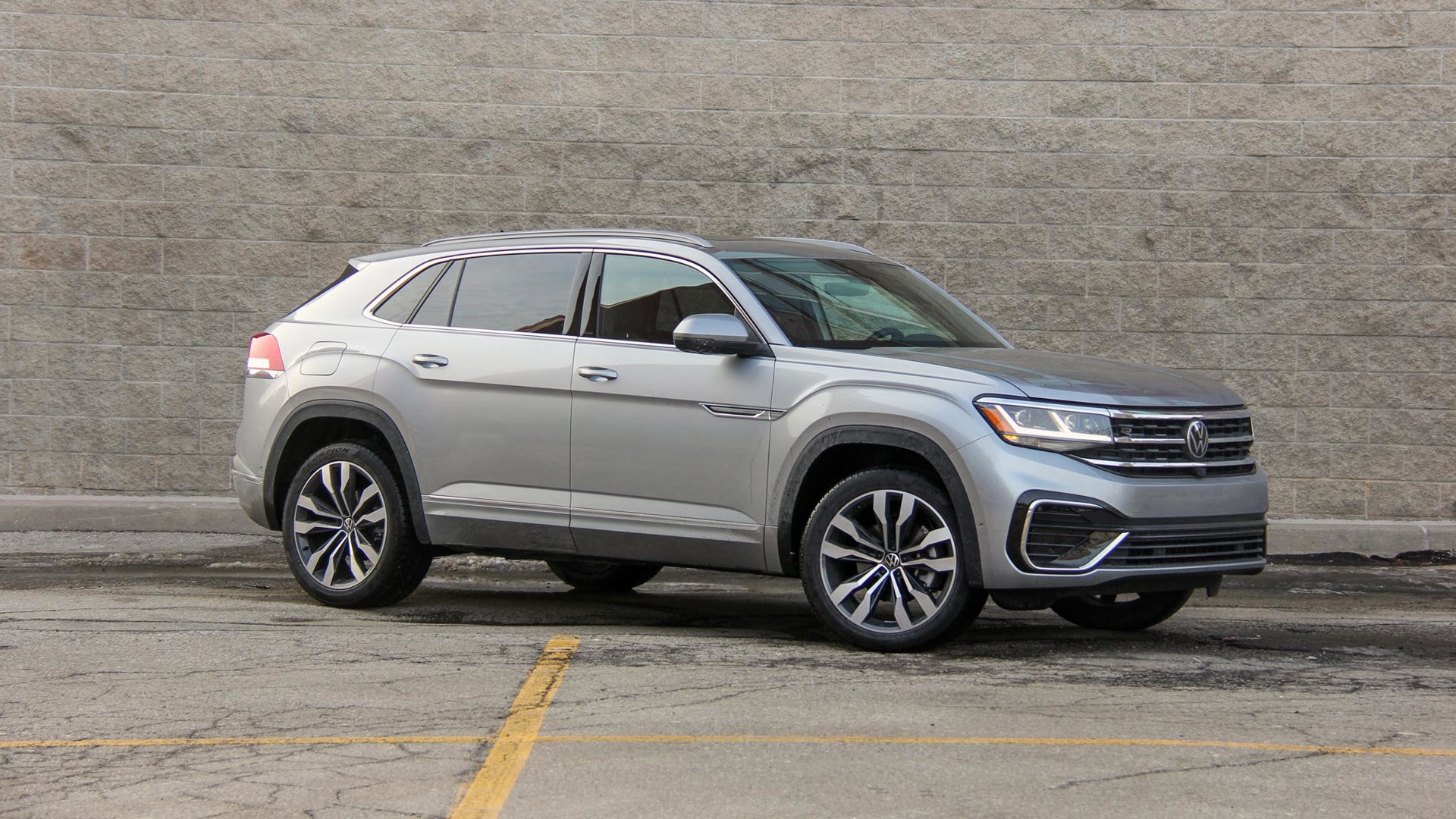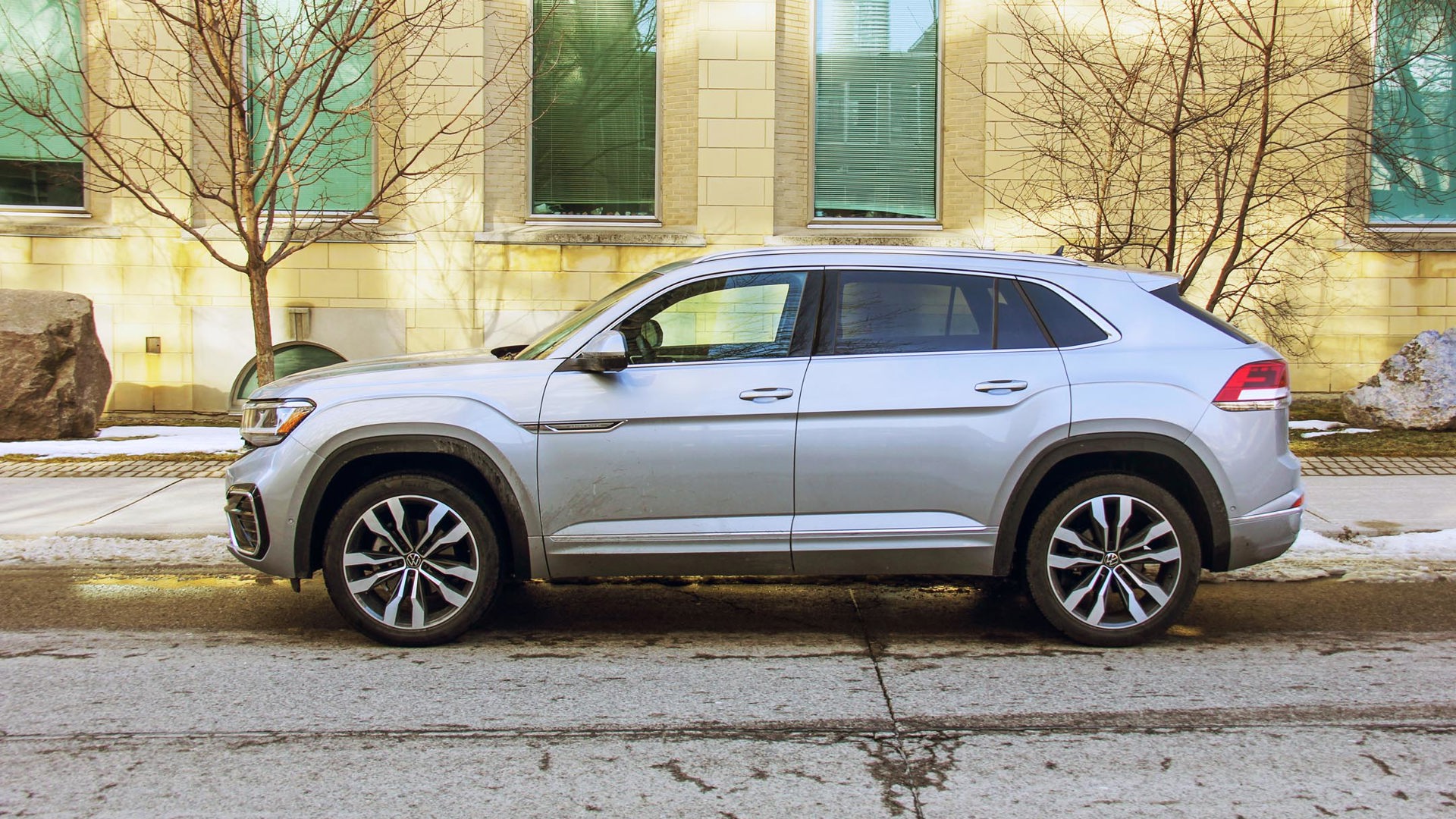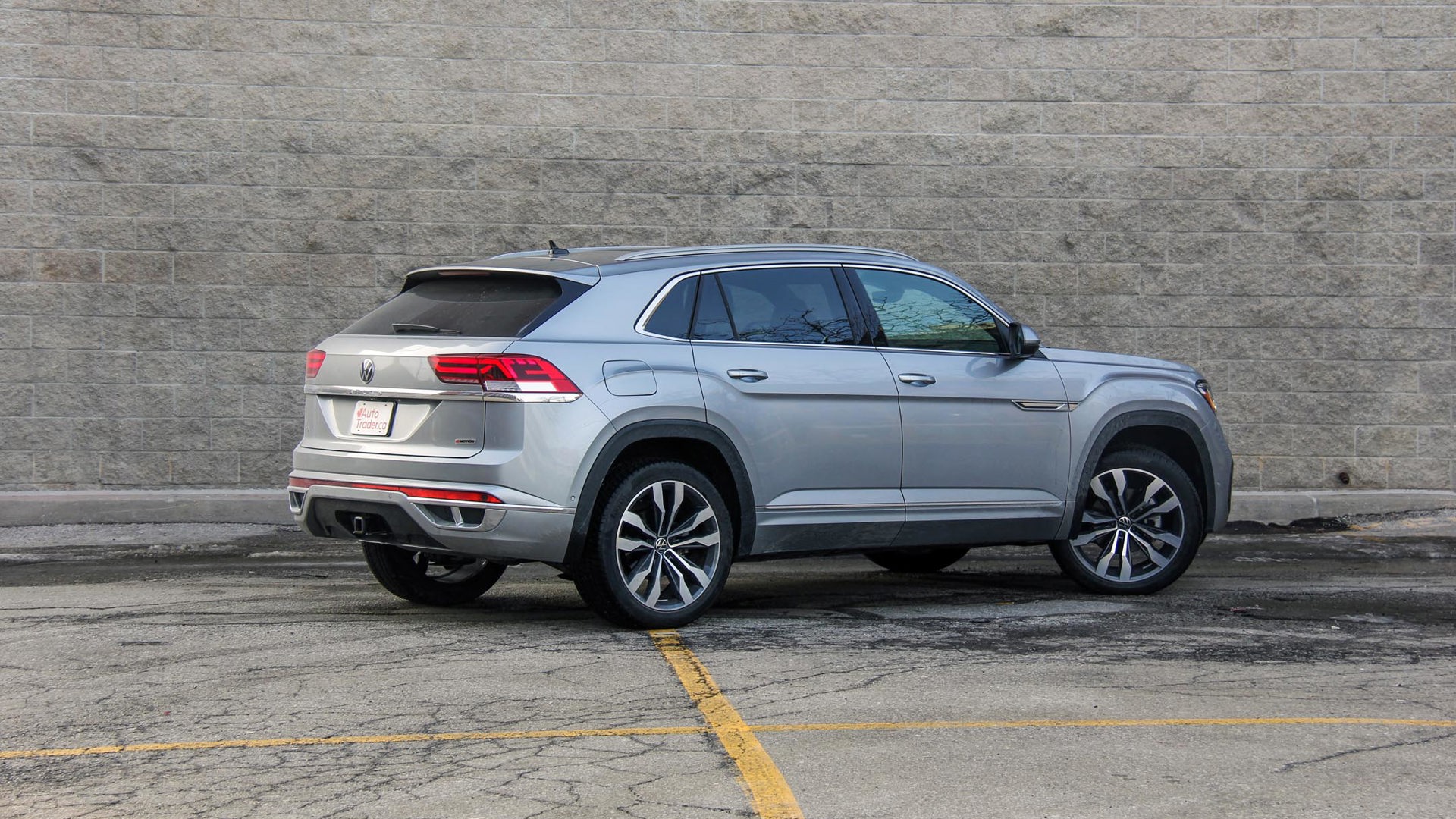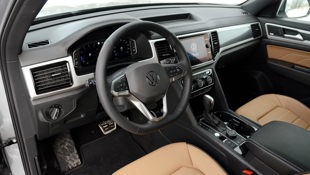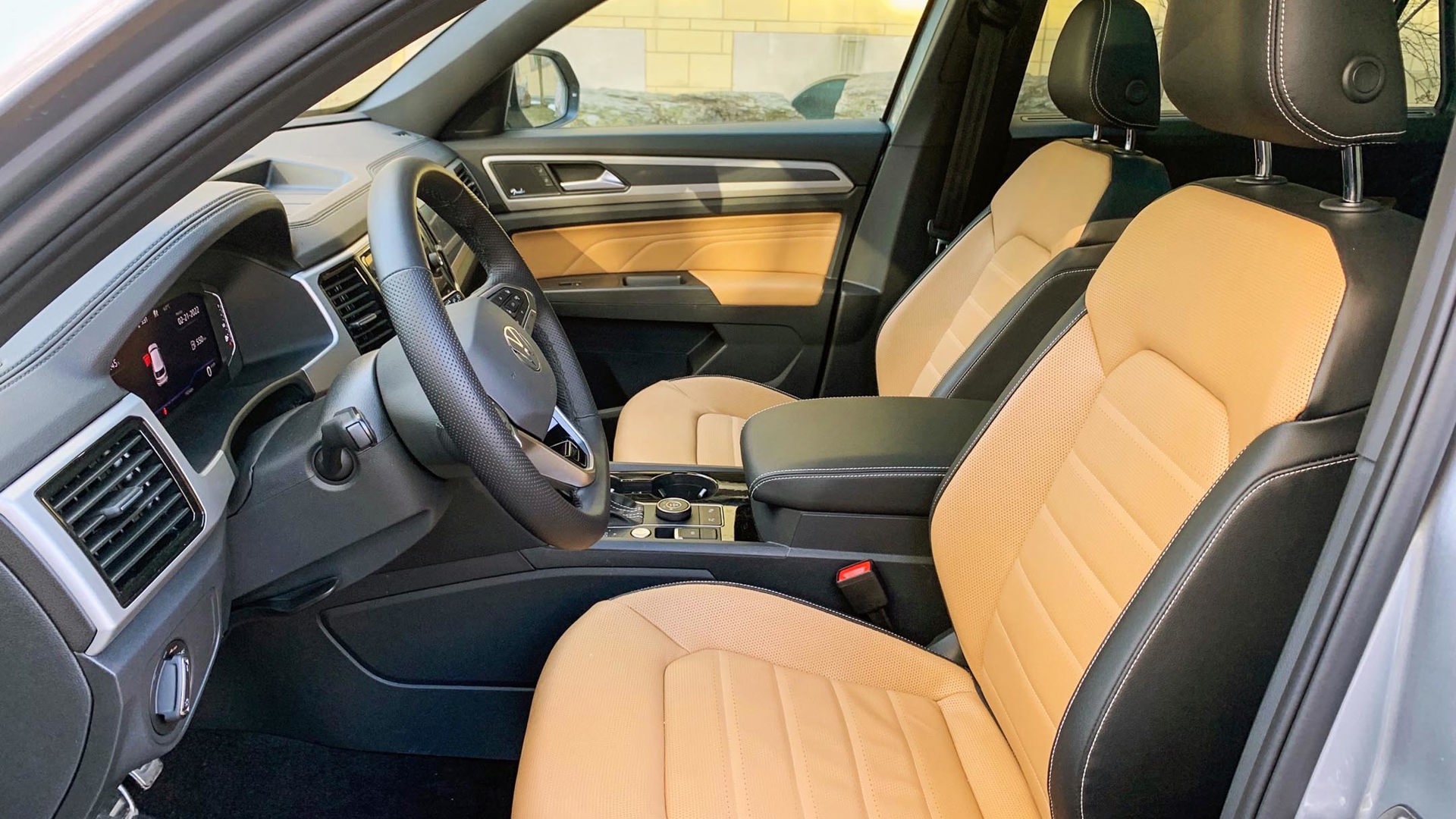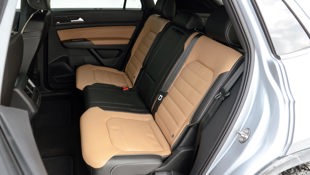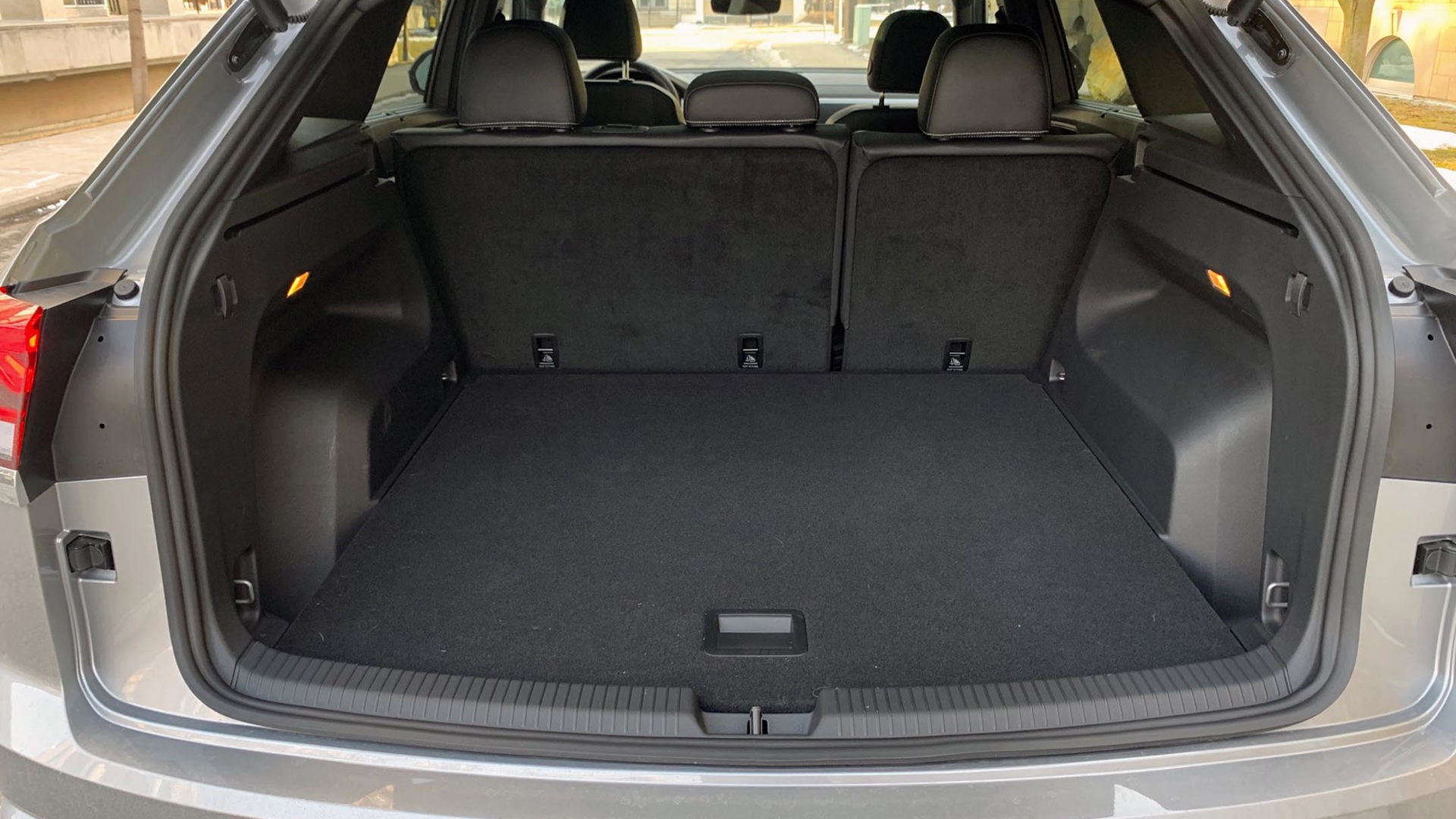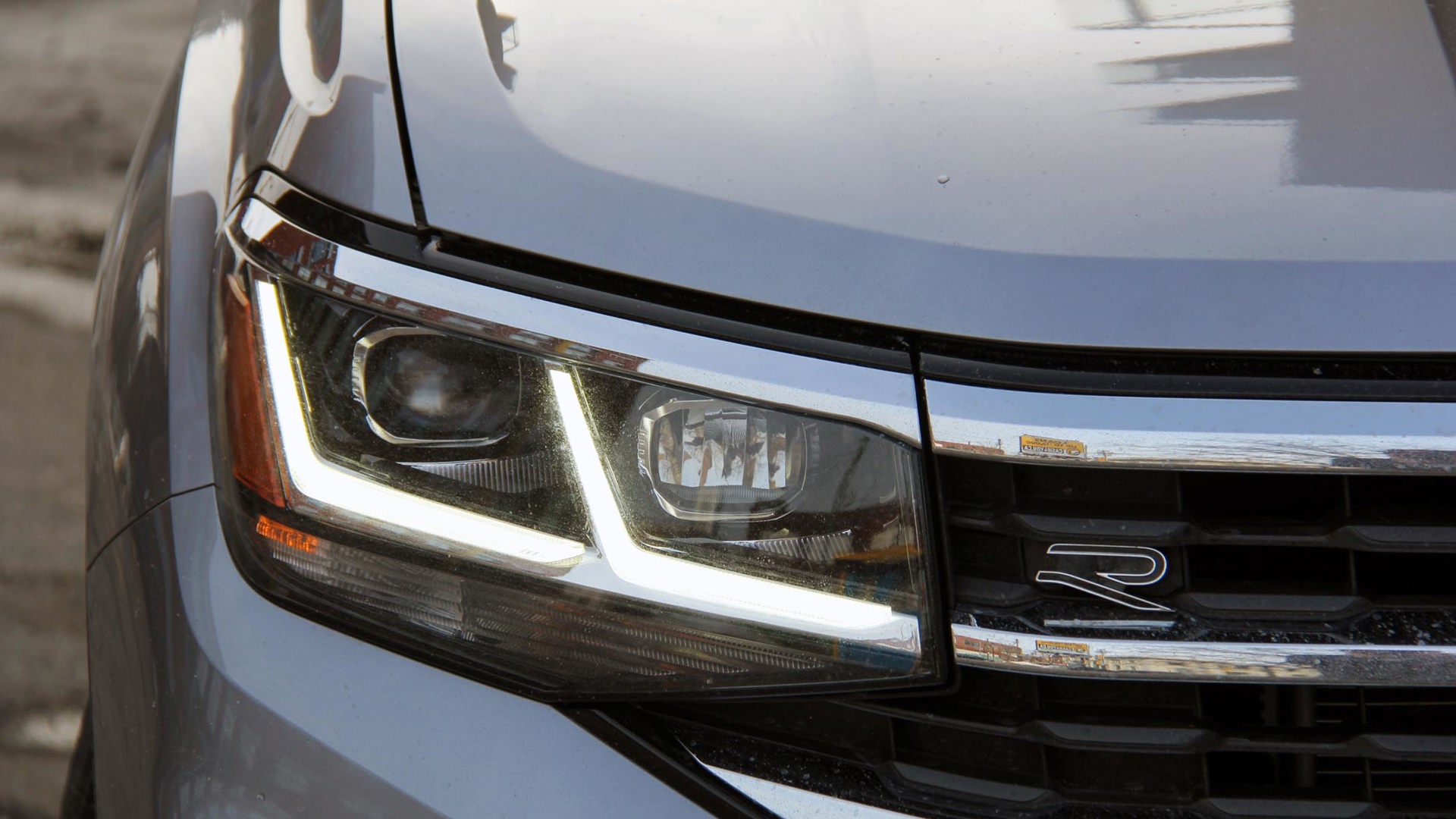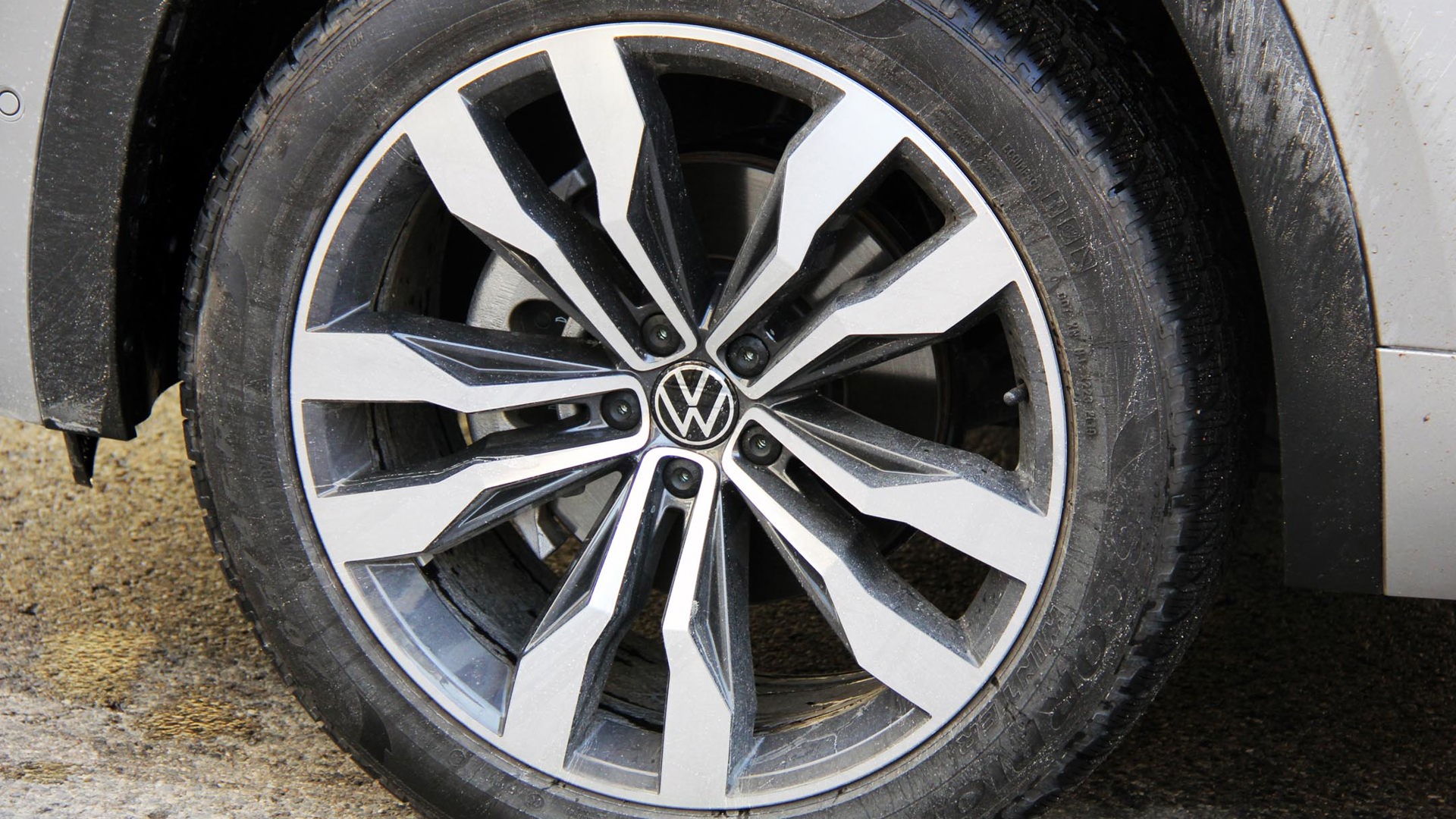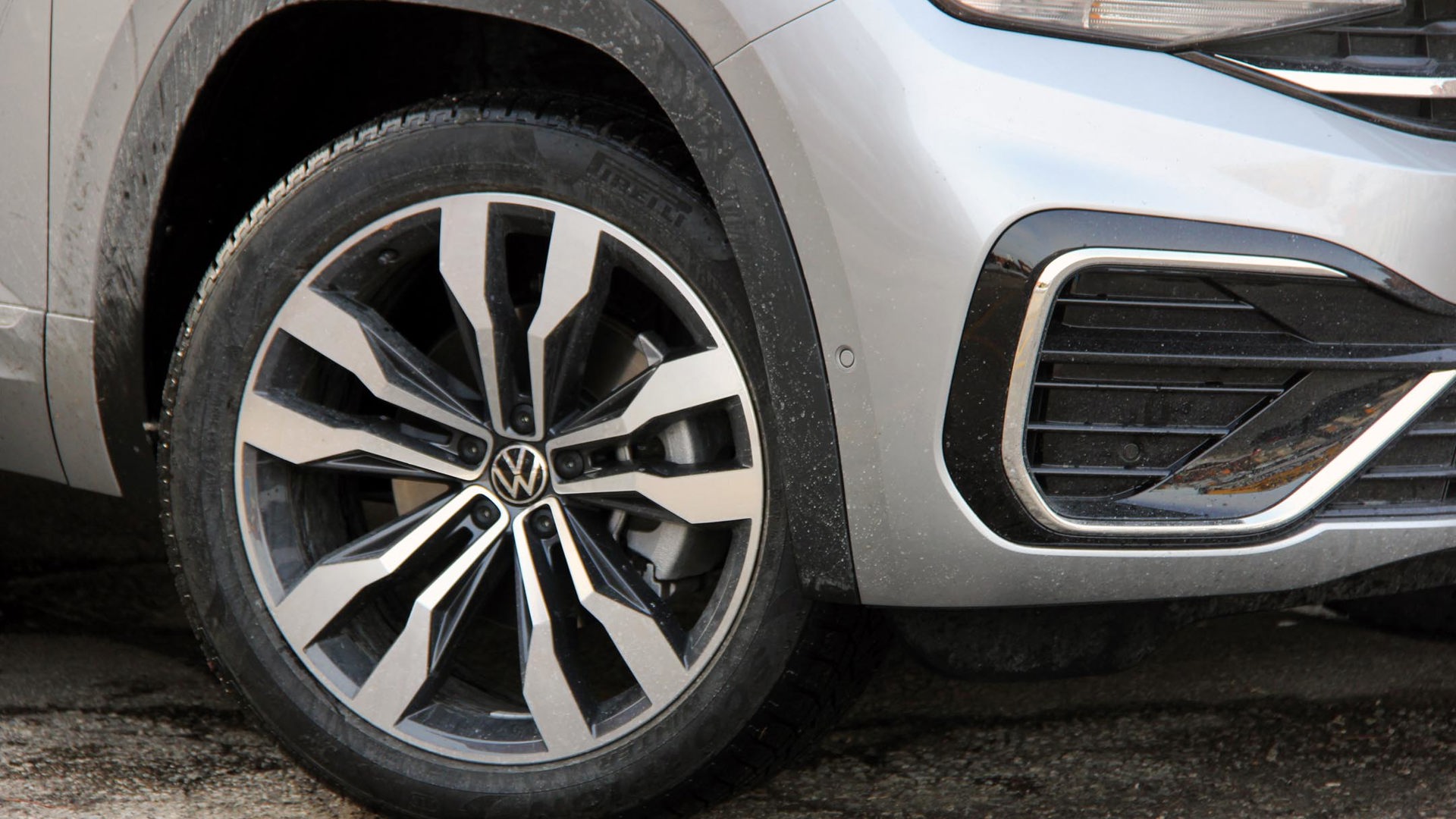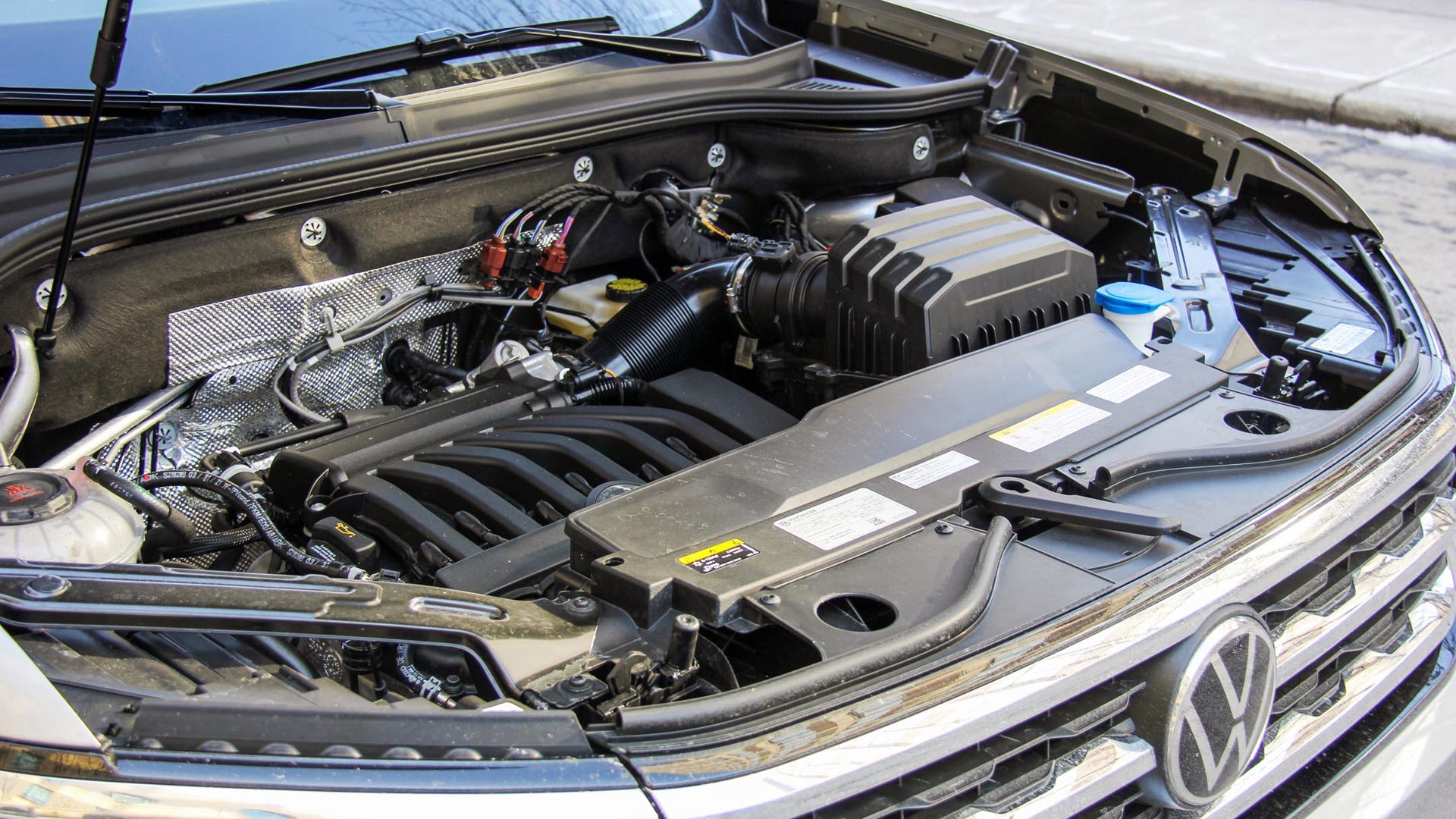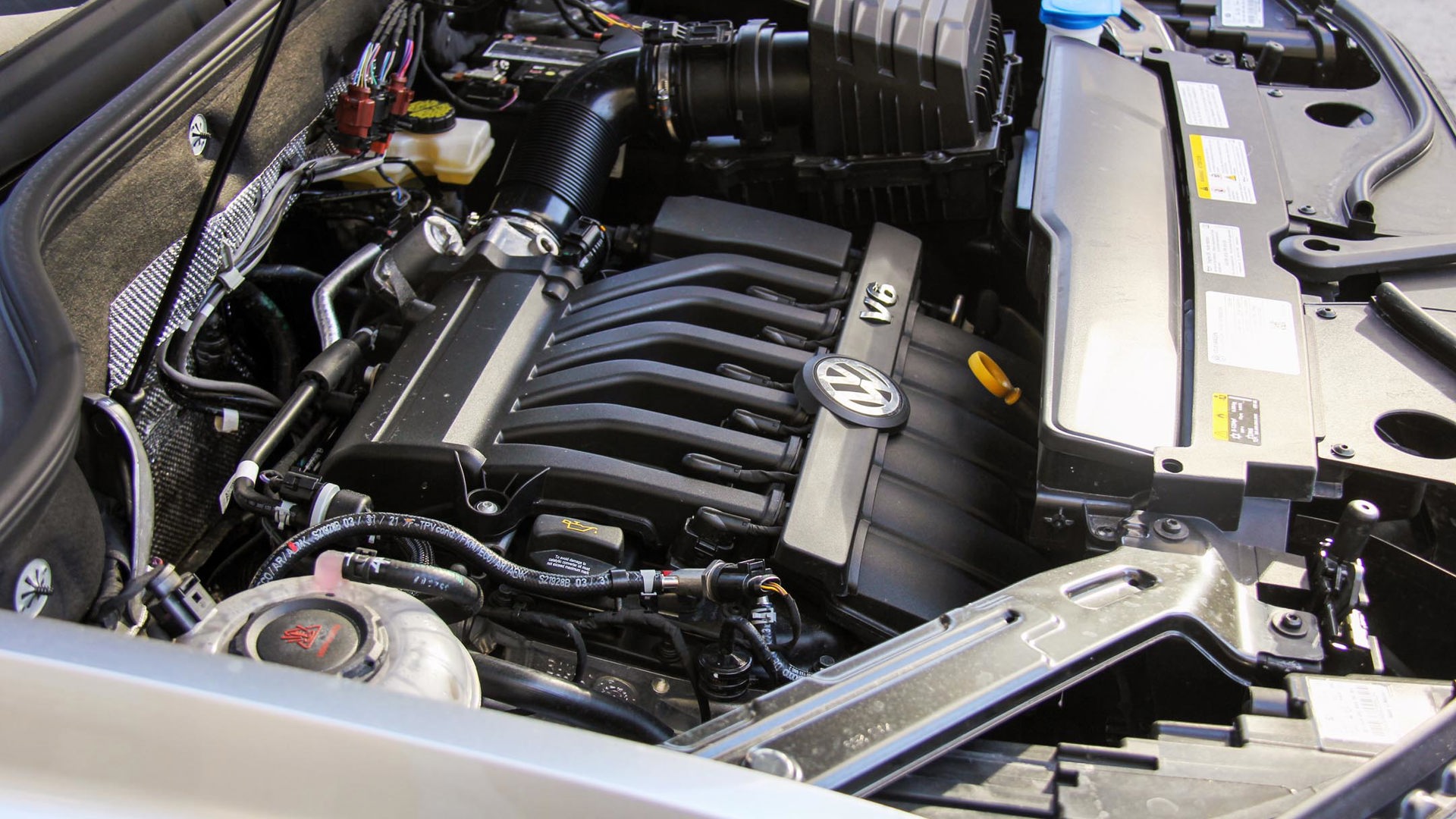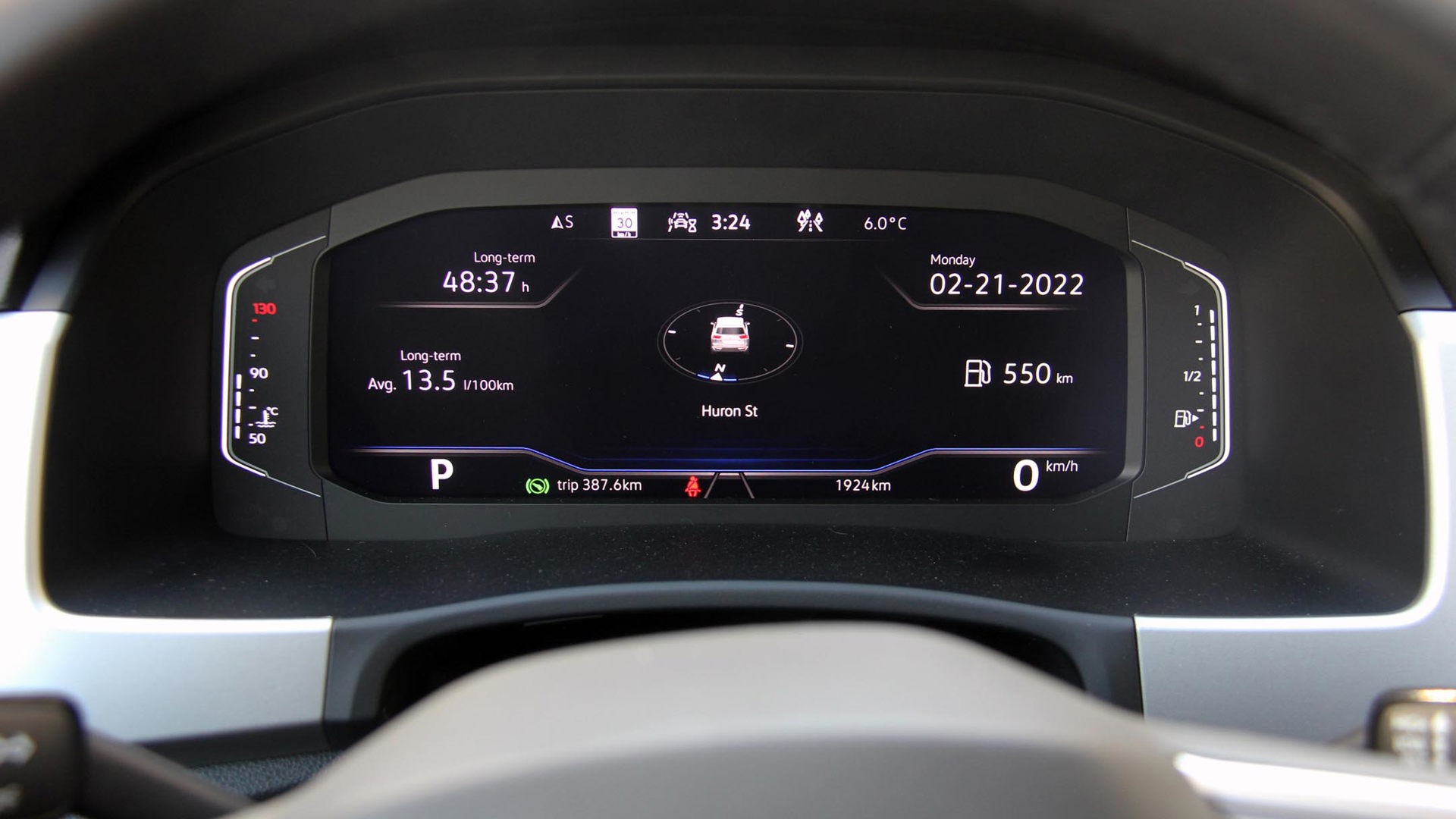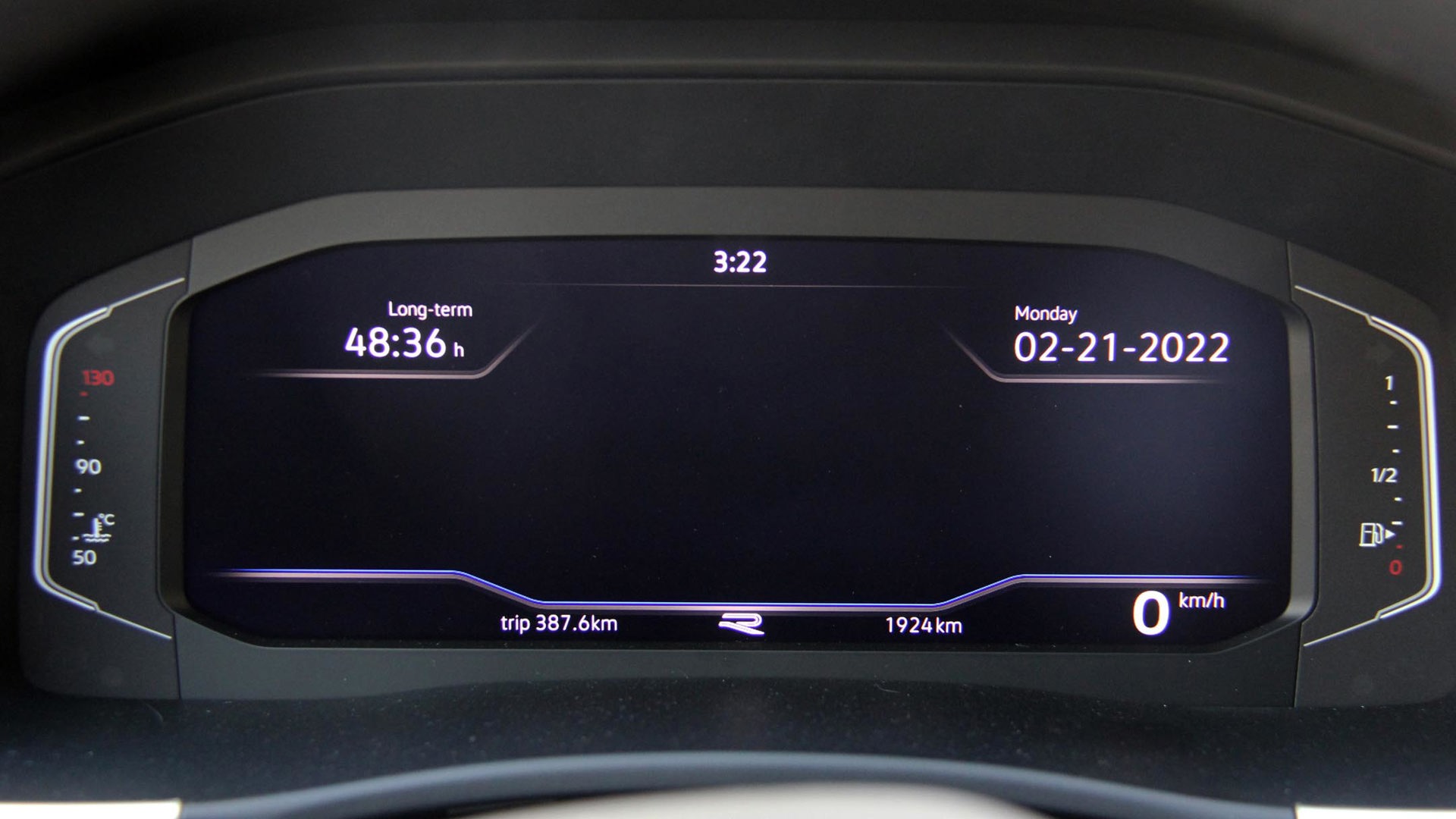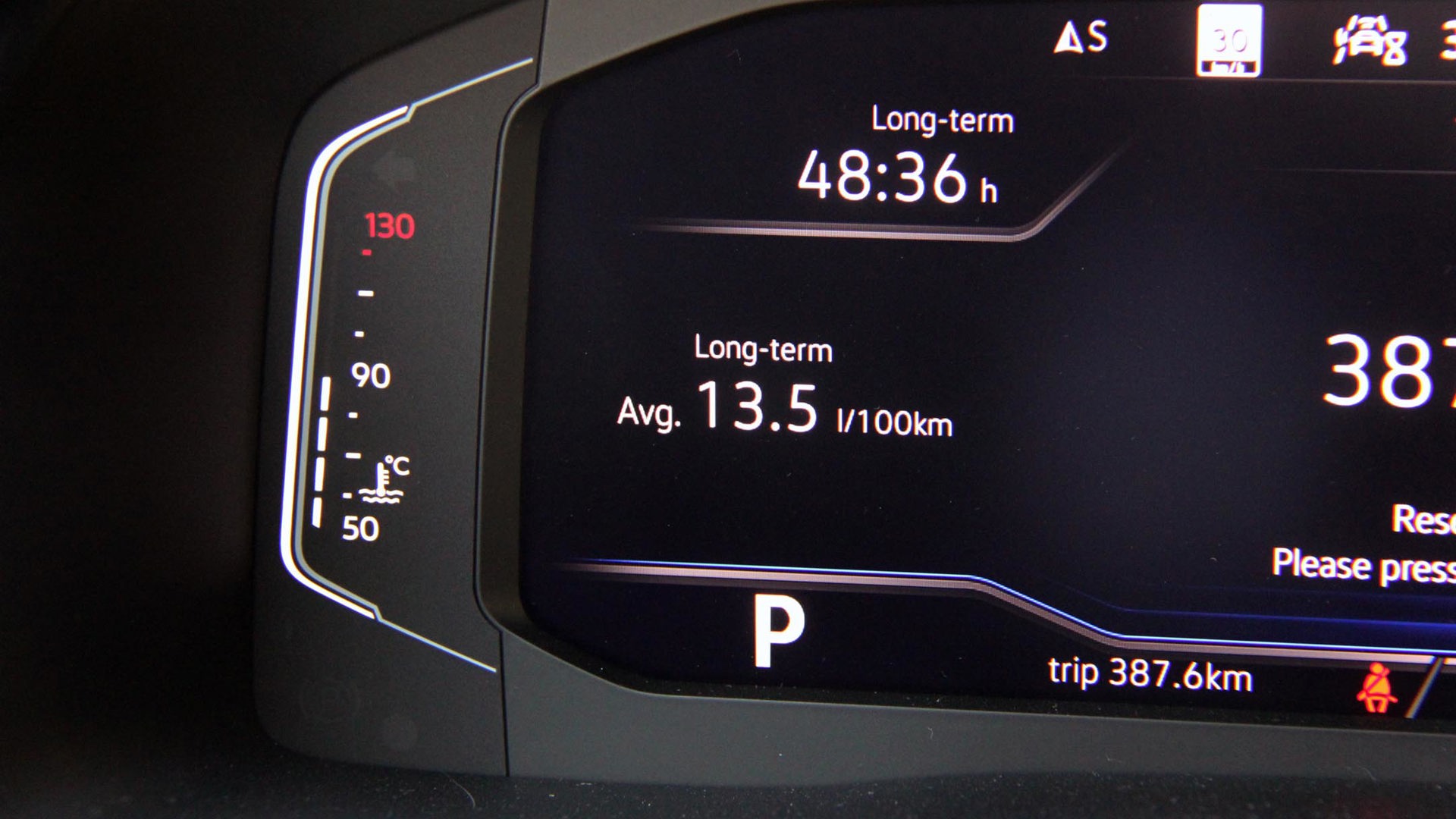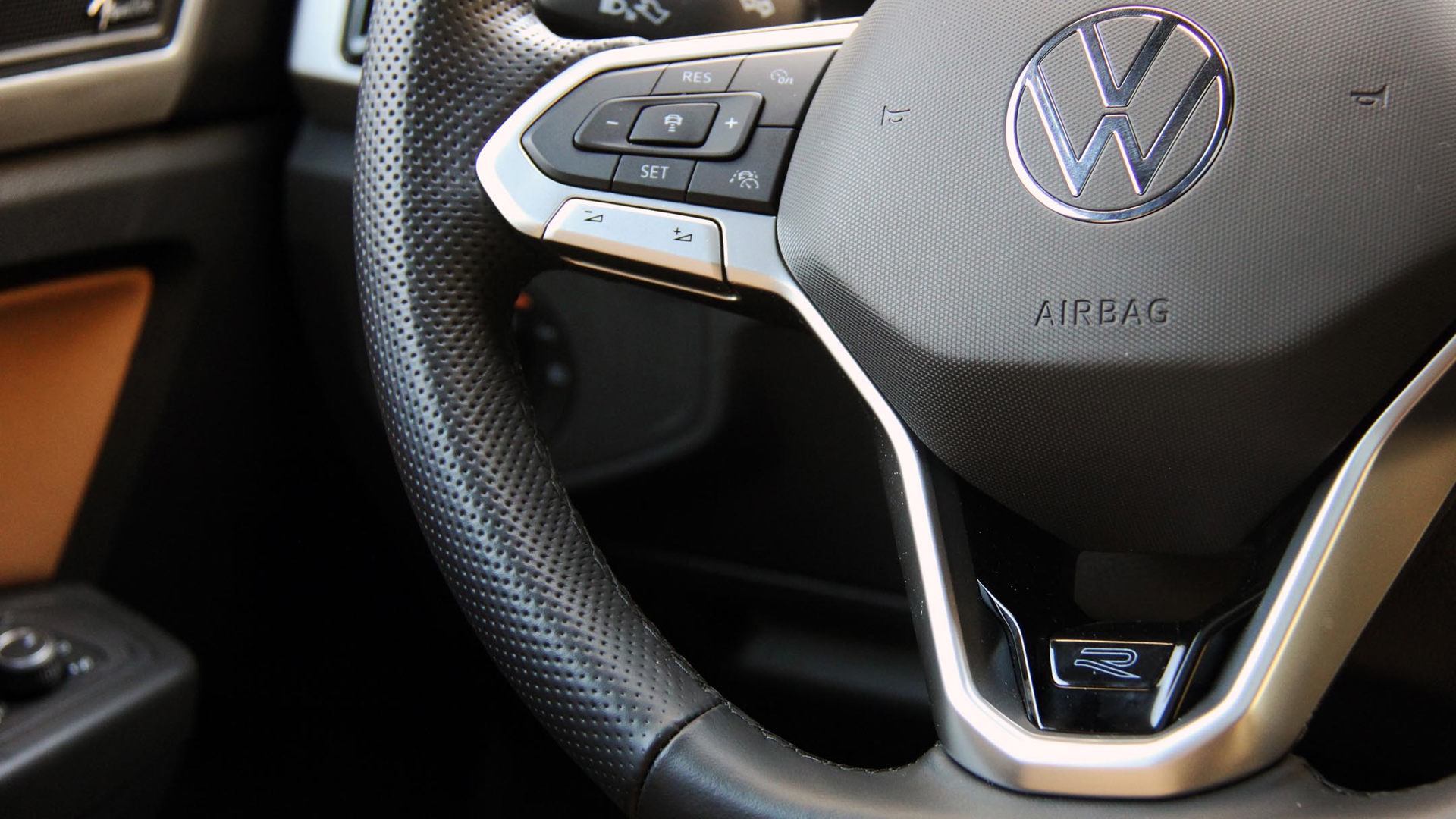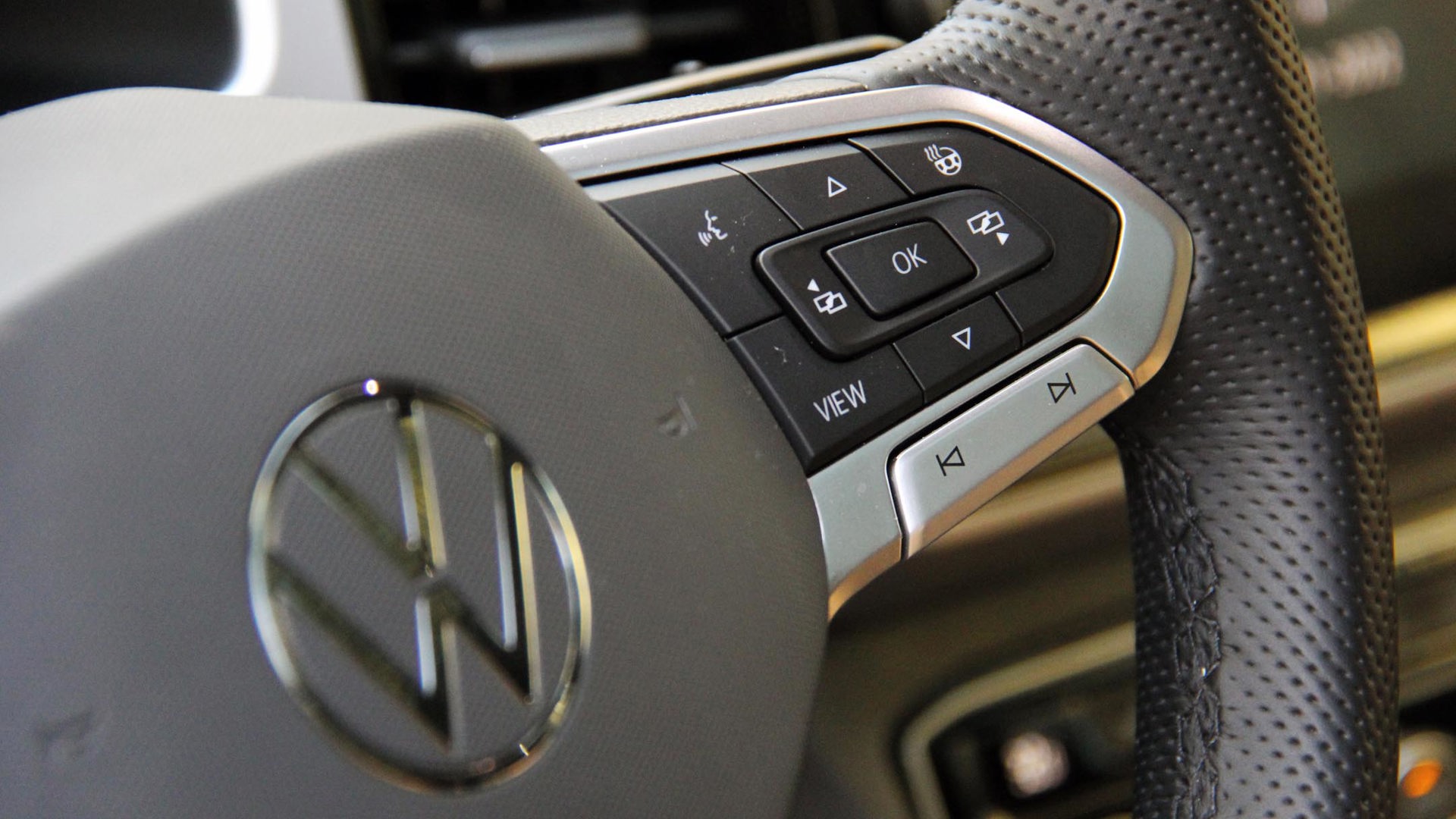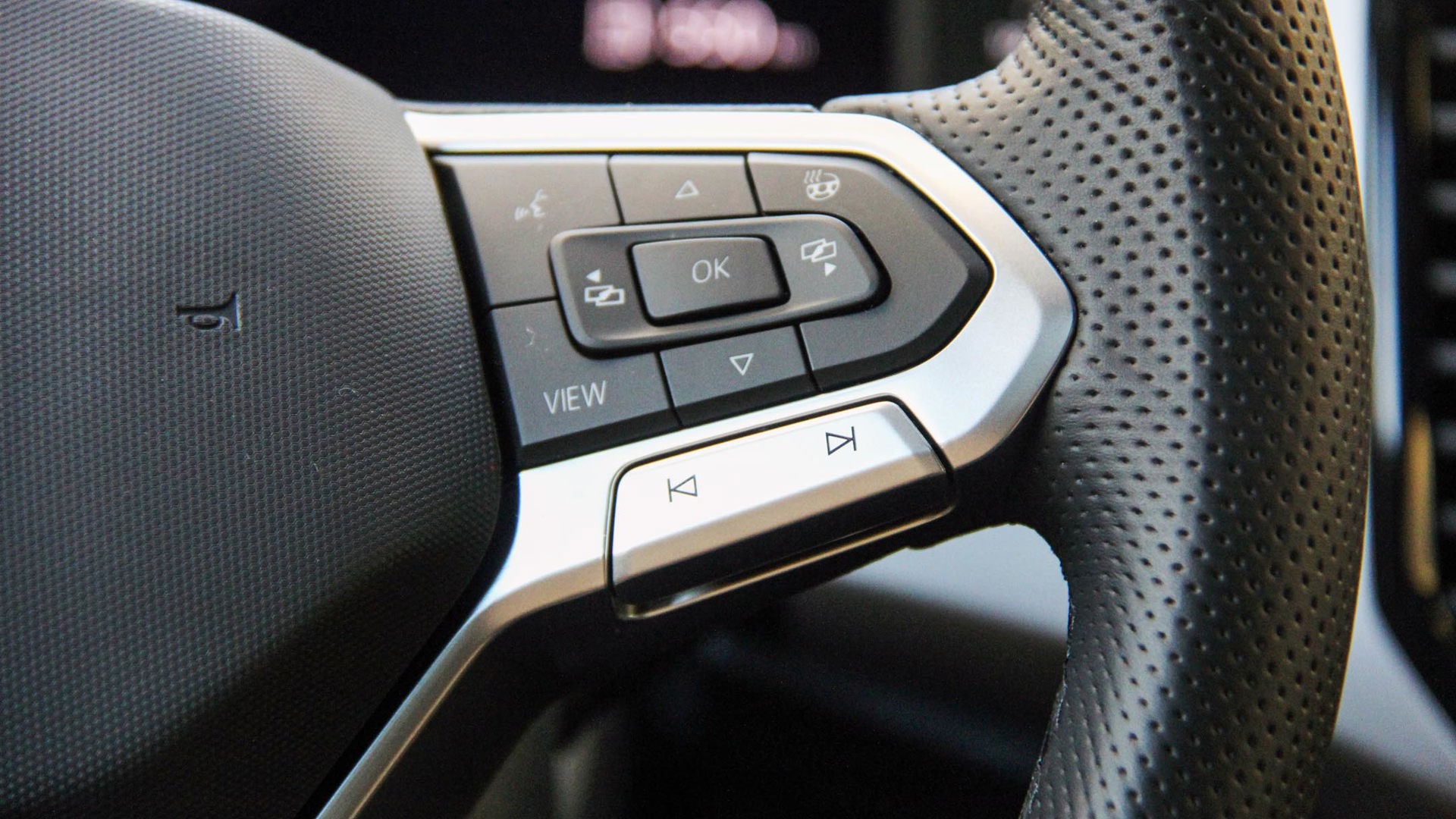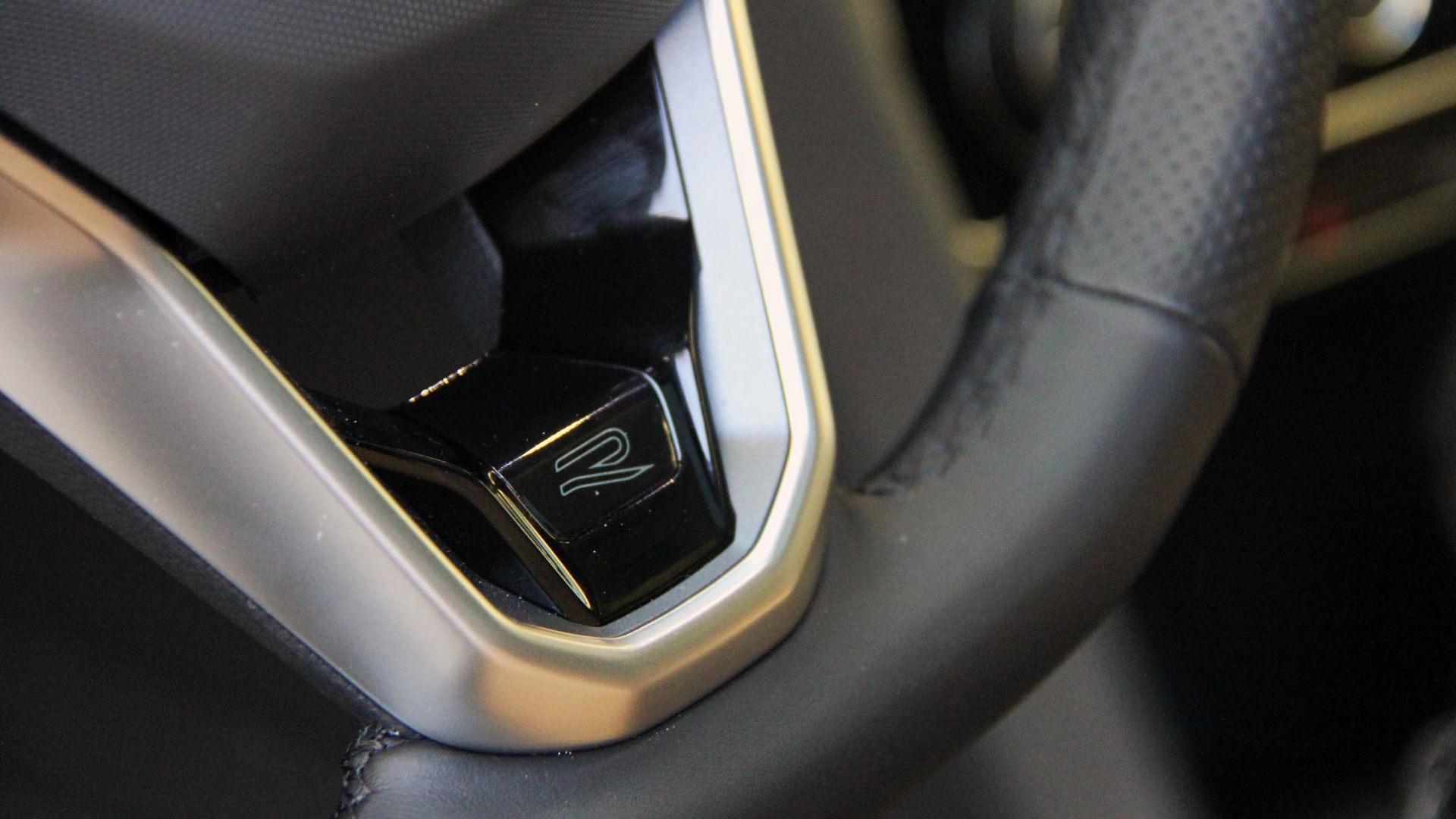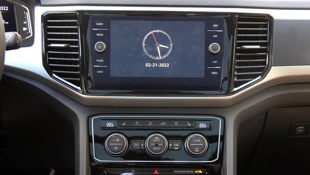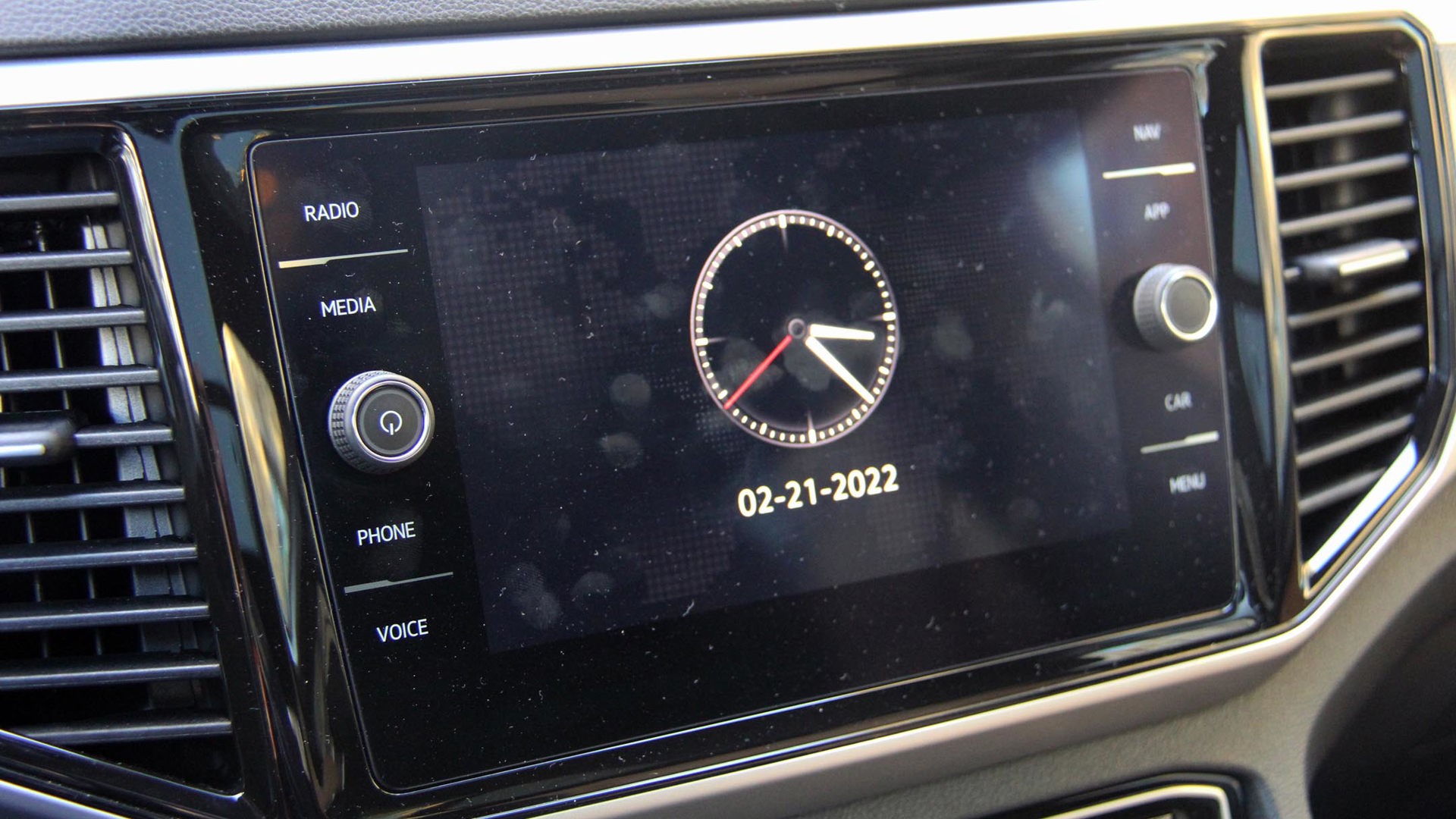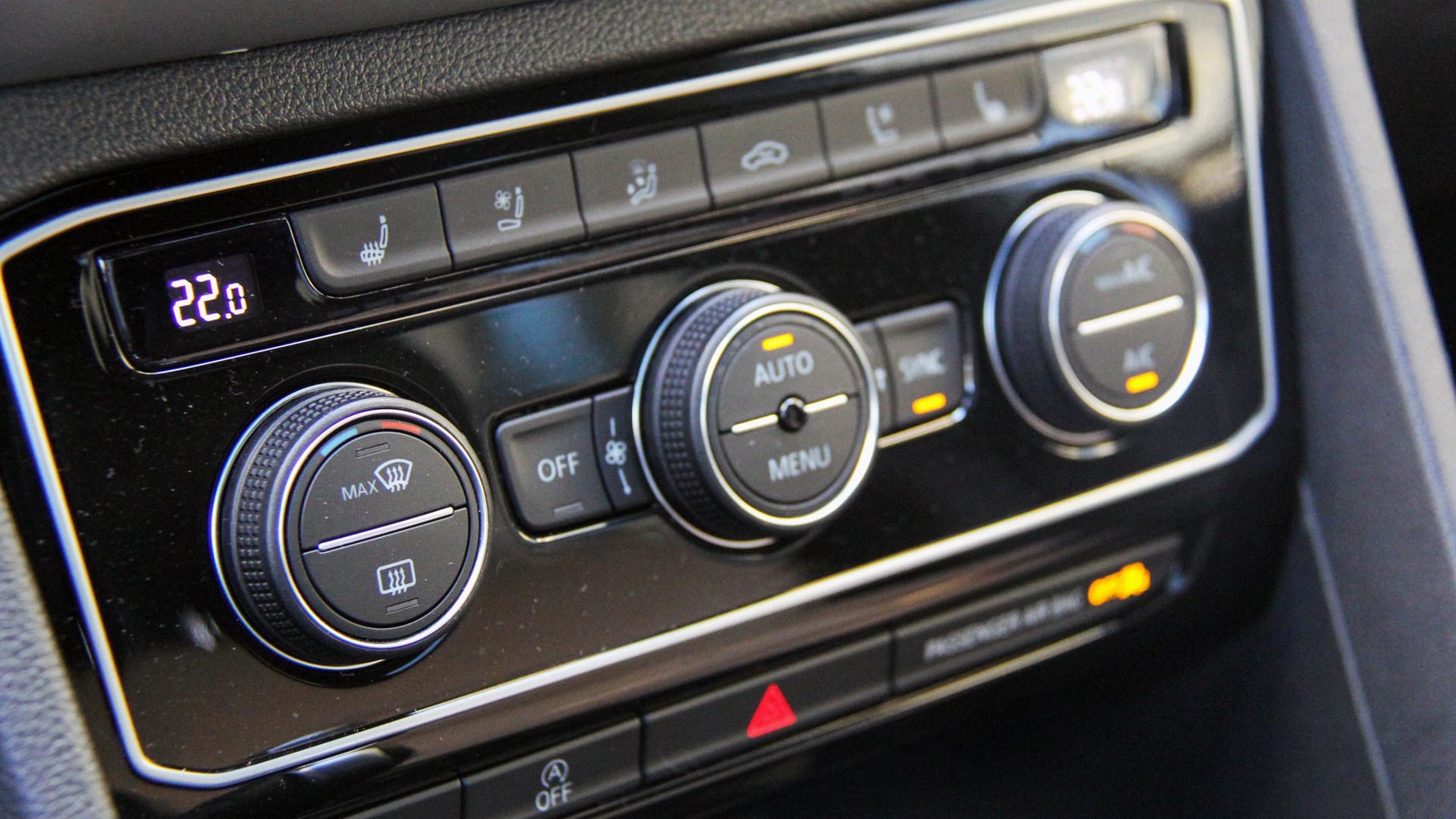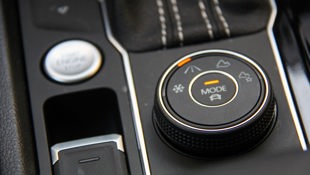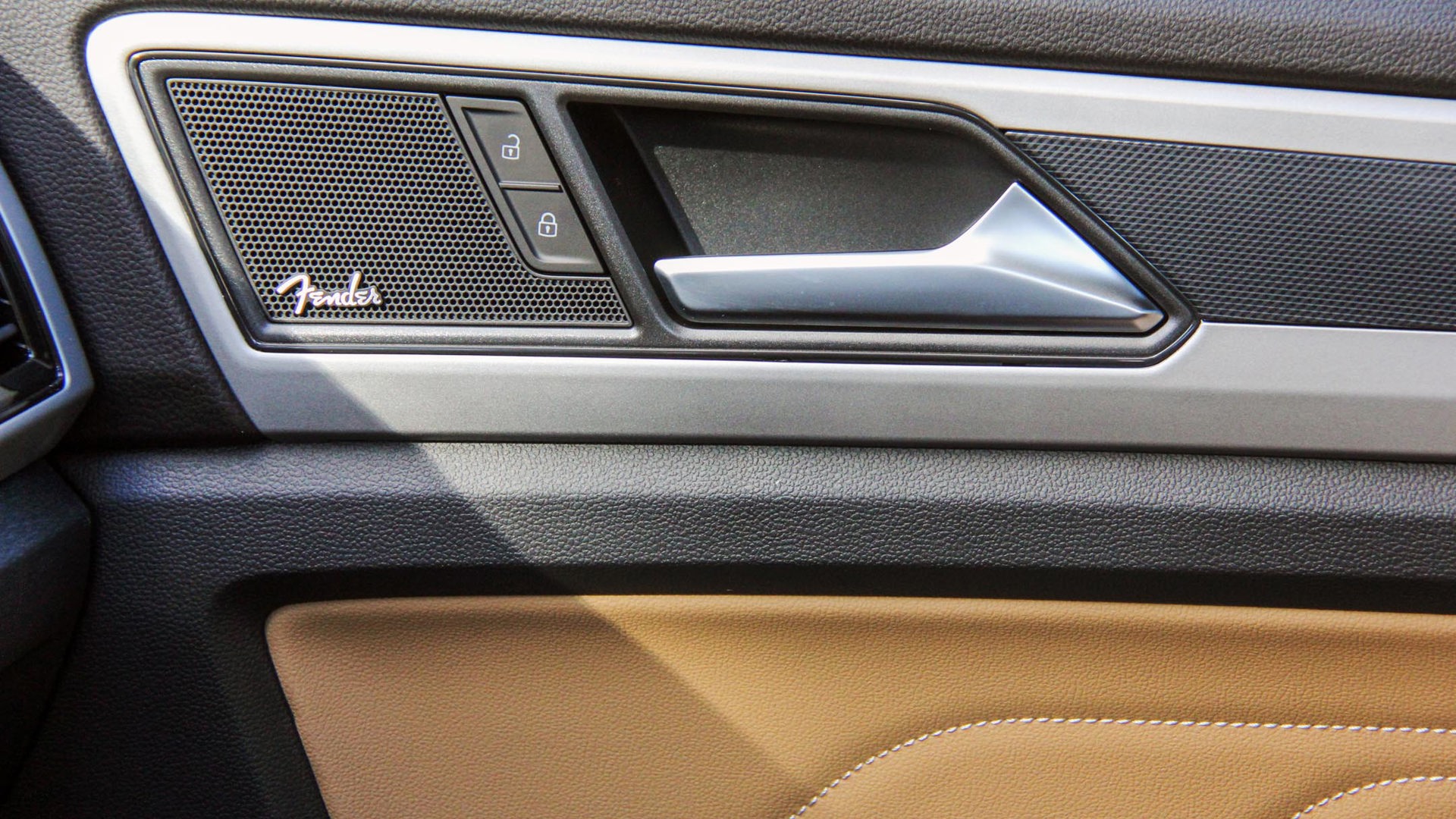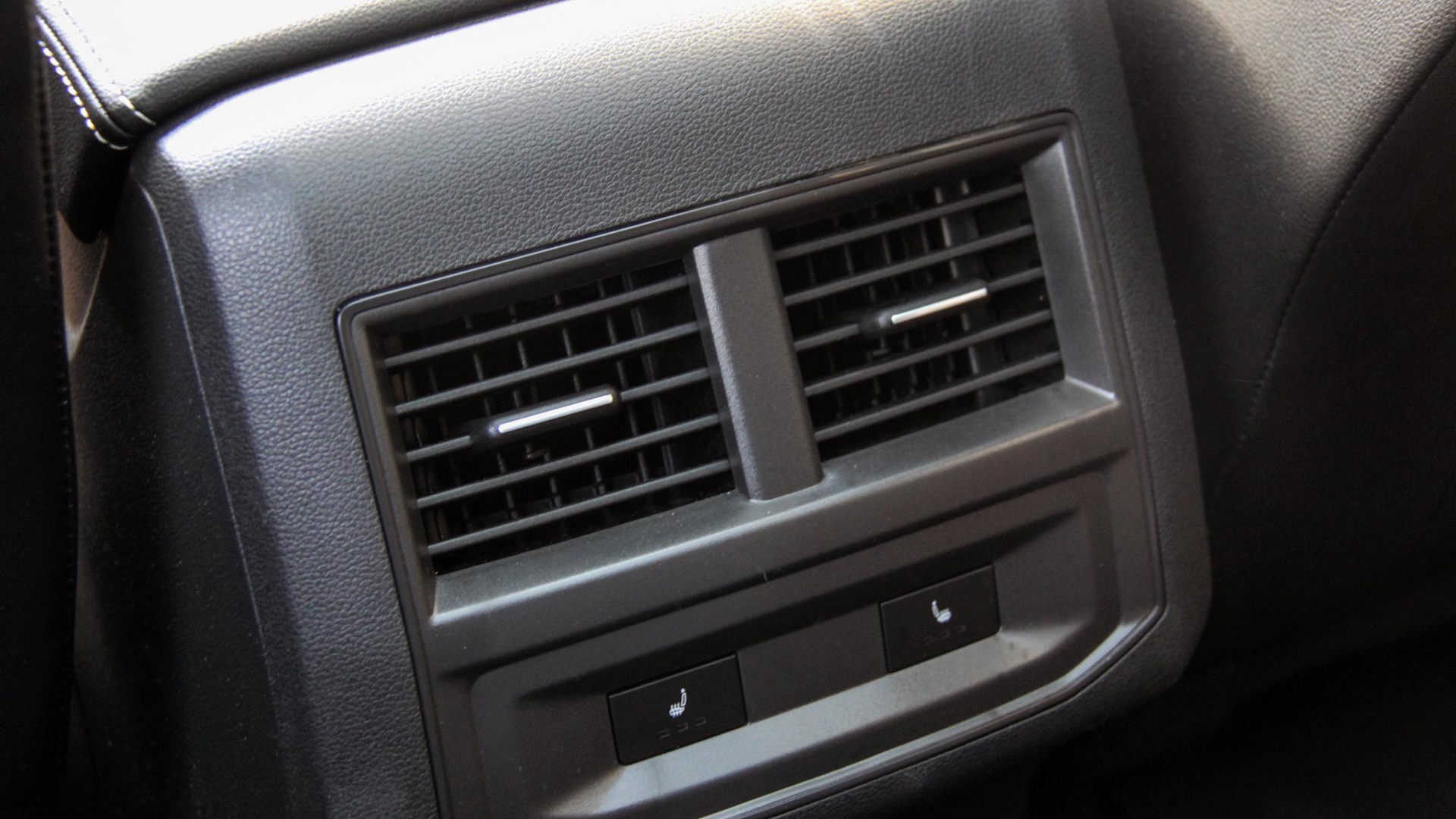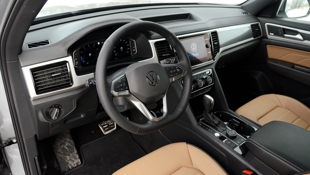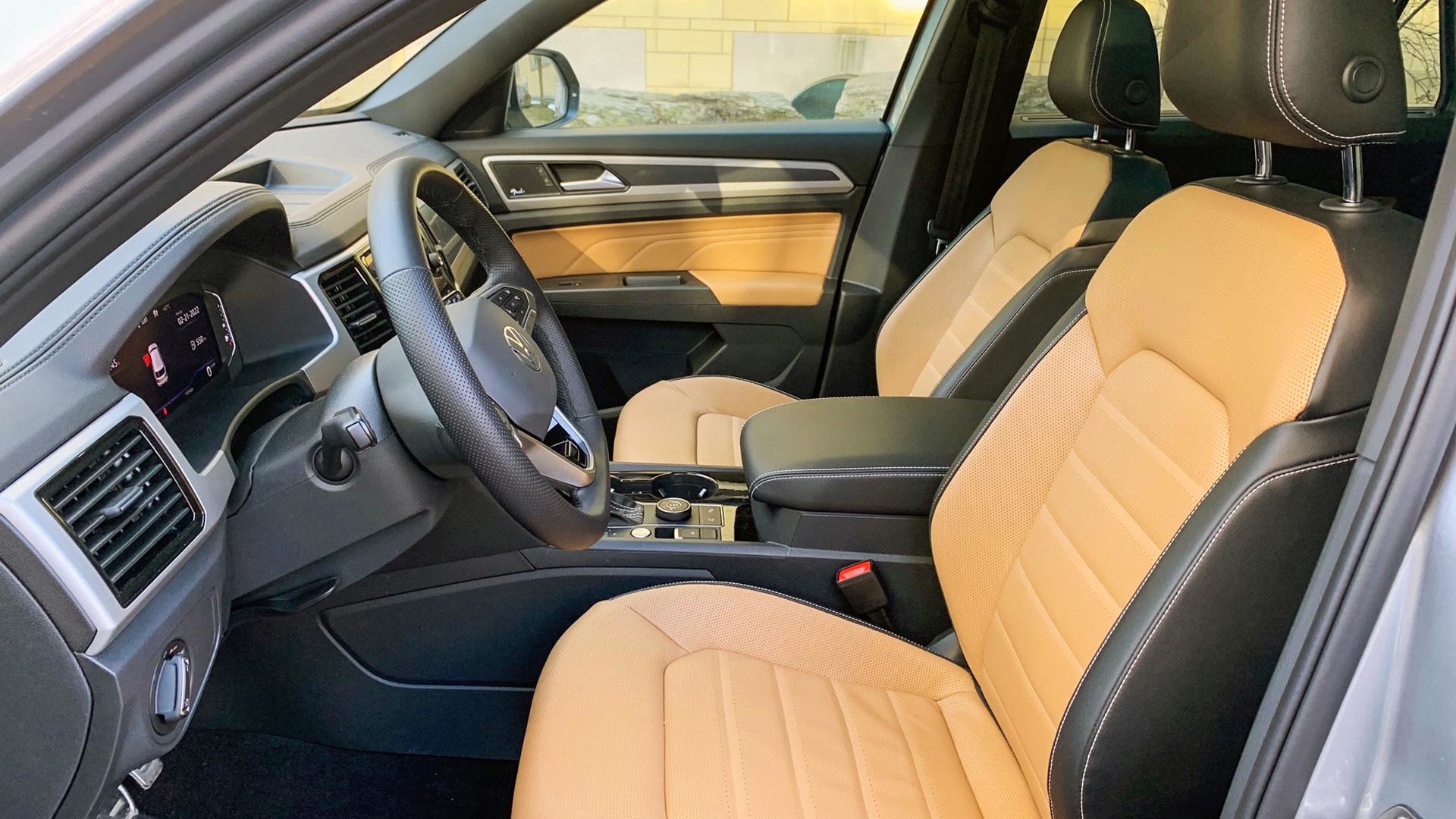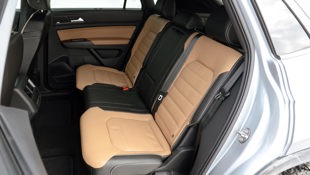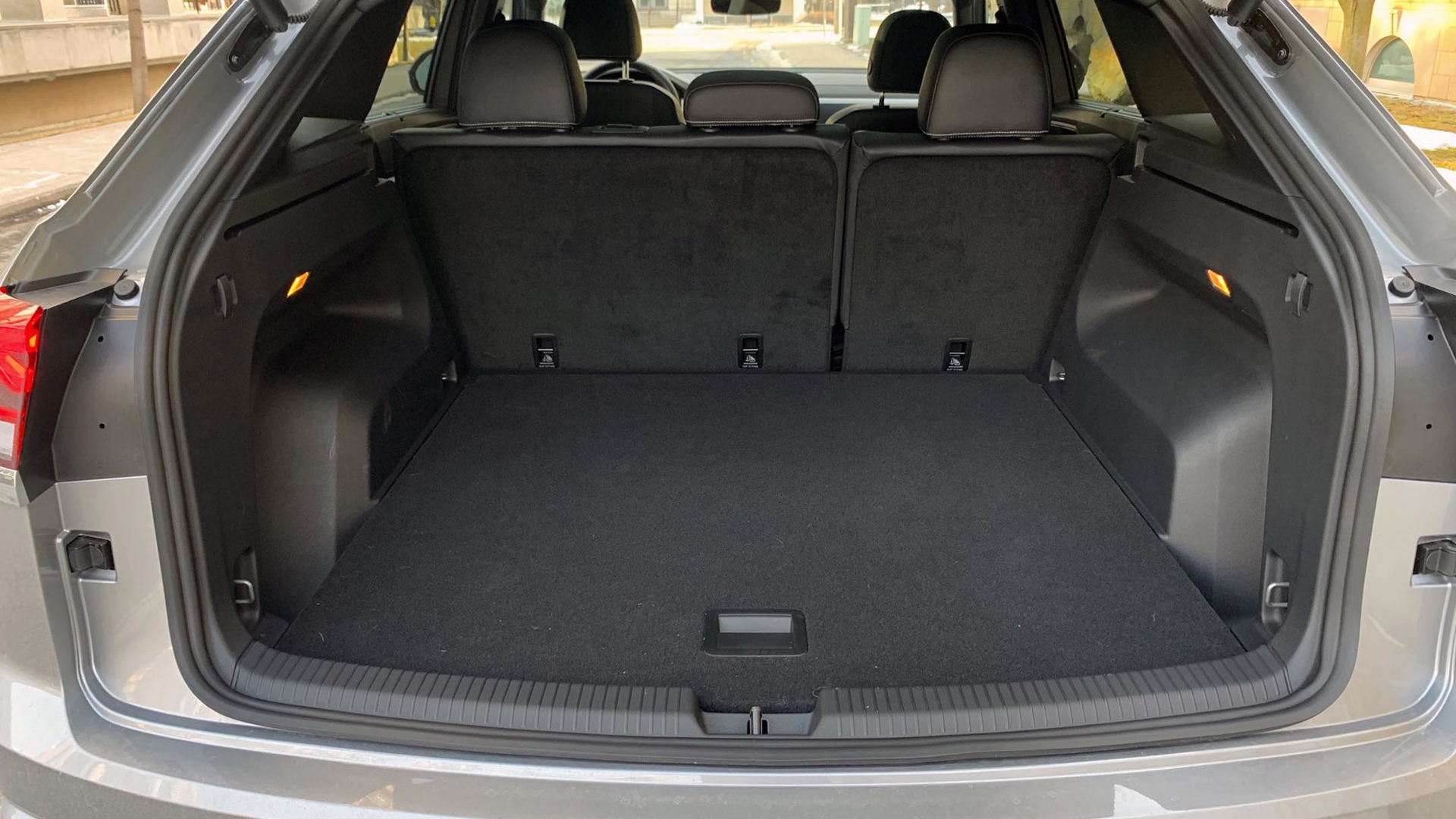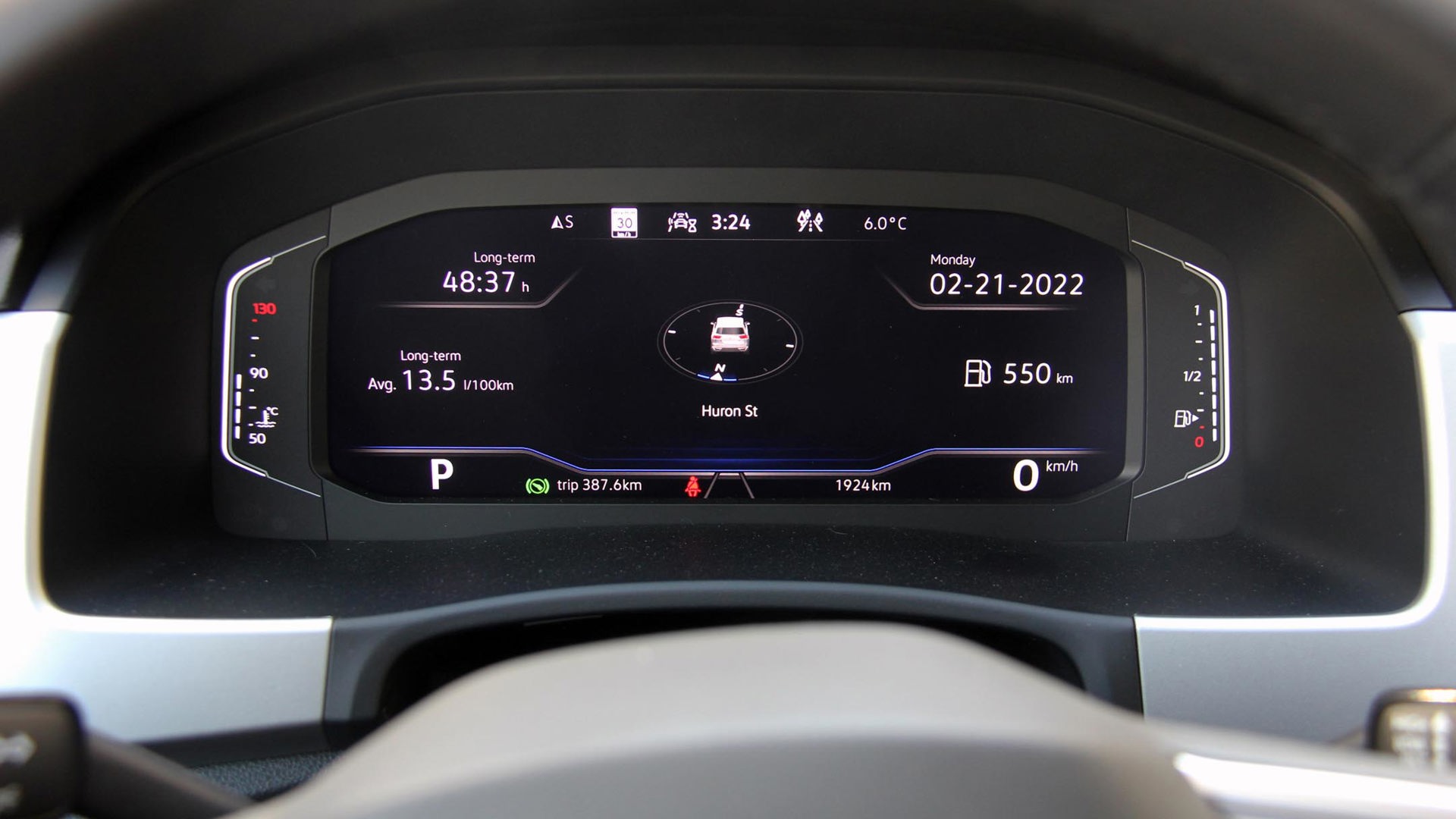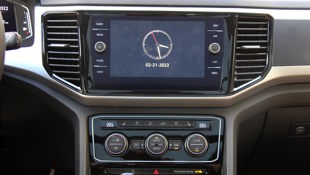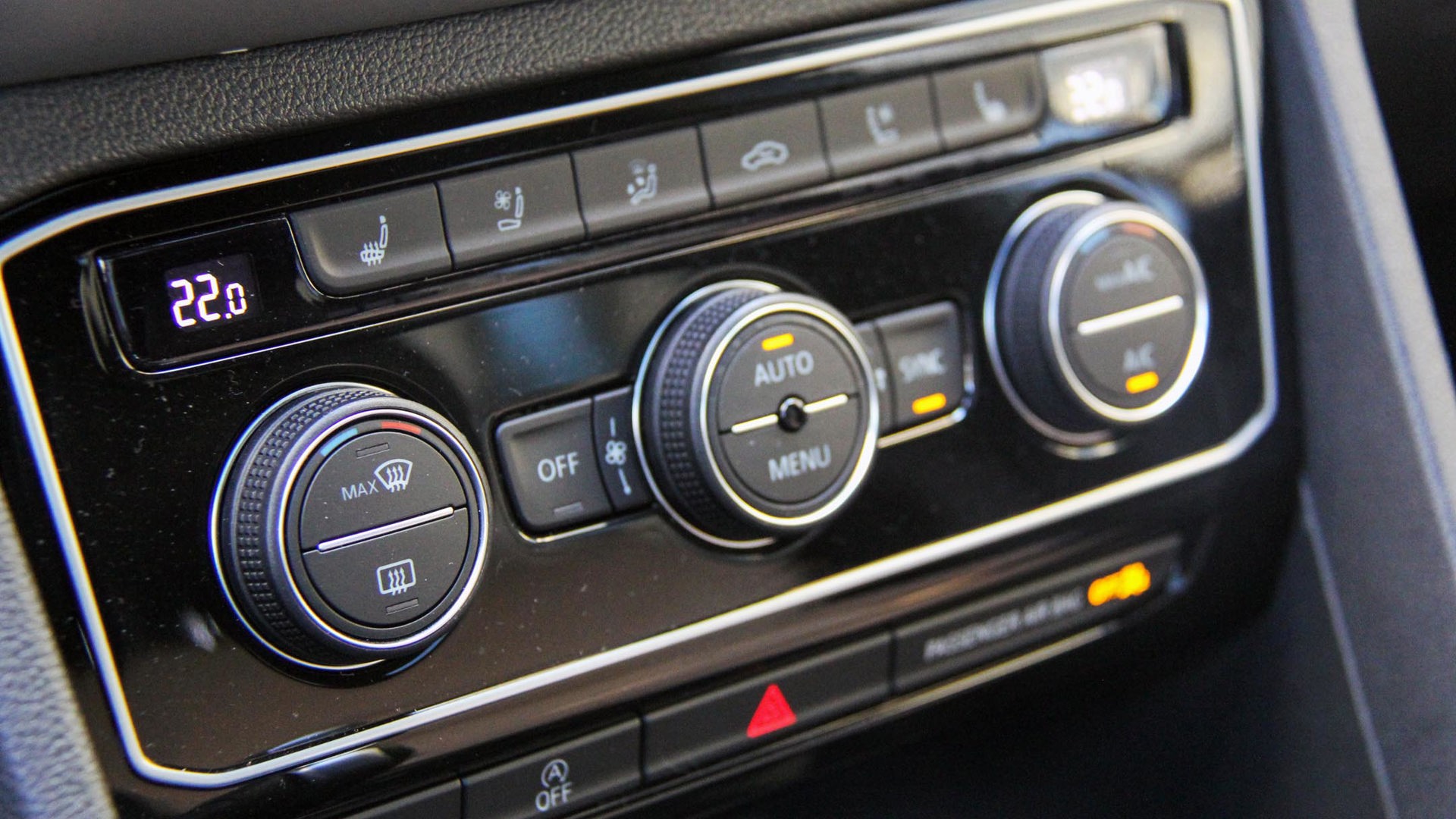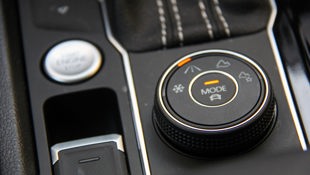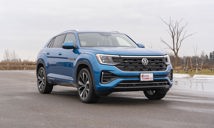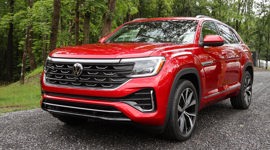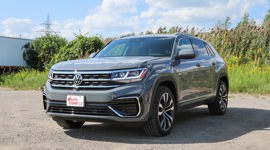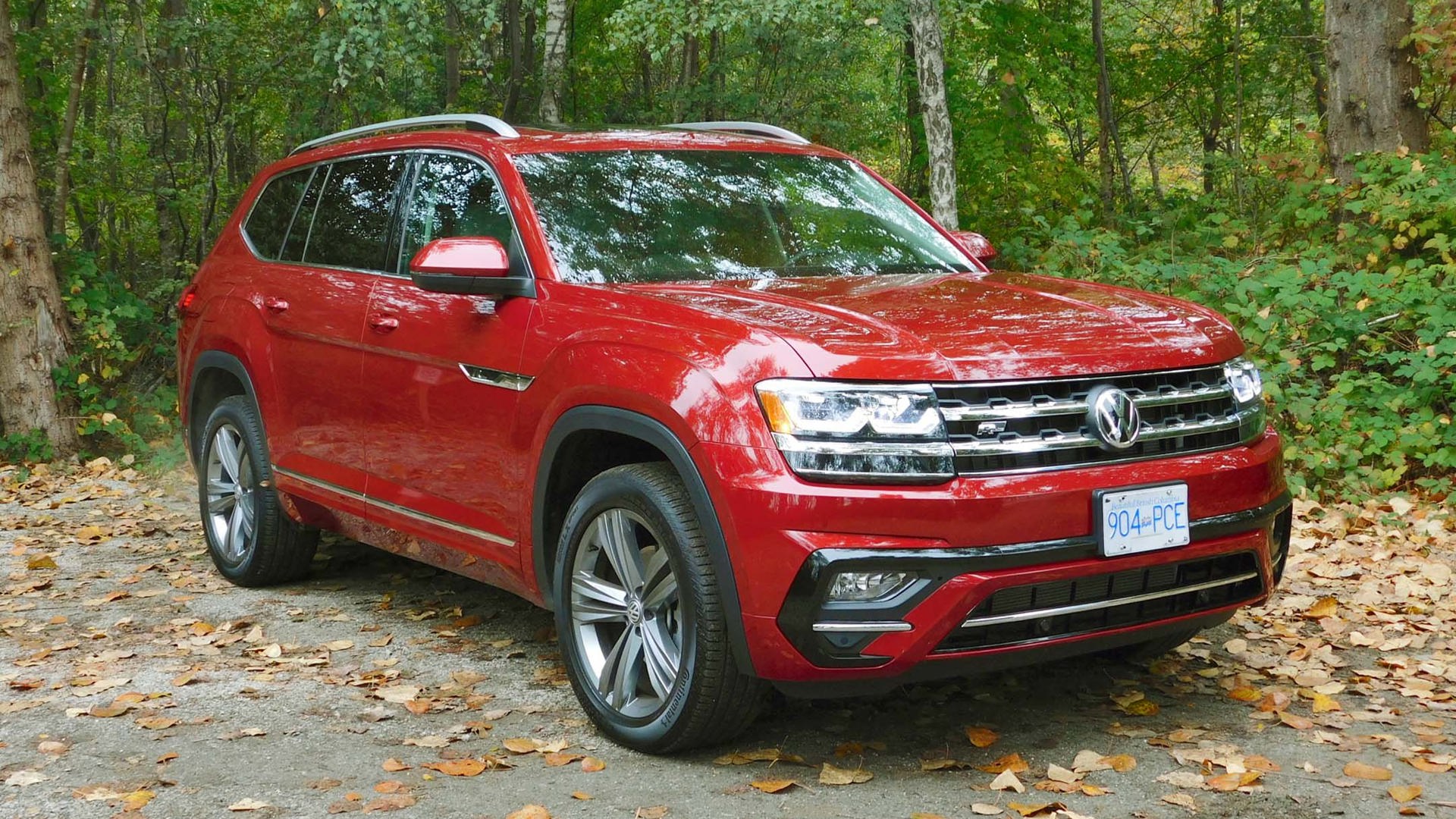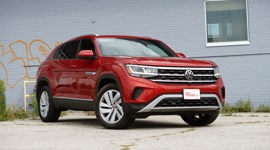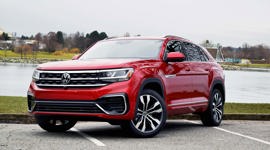 AutoTrader SCORE
AutoTrader SCORE
-
STYLING9/10
-
Safety7/10
-
PRACTICALITY9/10
-
USER-FRIENDLINESS7/10
-
FEATURES8/10
-
POWER7/10
-
COMFORT7/10
-
DRIVING FEEL7/10
-
FUEL ECONOMY6/10
-
VALUE8/10
Previously reserved only for the premium market, the SUV “coupe” was made mainstream by Volkswagen a couple years ago with its brooding Atlas.
Built on the same platform as the existing version, the sportback variant adds a raked rear end at the cost of passenger and cargo capacity. After spending a week with the 2022 Volkswagen Atlas Cross Sport in its top Execline trim, I found it to be a predominantly positive experience with only a few small shortcomings that could be improved upon.
Styling: 9/10
Styling is highly subjective, but I think the Atlas is one good-looking SUV – a declaration I don’t often make. Its roofline is low slung and sleek, but its bulging fenders help give it an aggressive, commanding presence.
The Execline includes the R-Line styling package as standard, which adds unique bumpers and badging, interior accents and steering wheel, as well as two-tone 21-inch machined alloy wheels. My tester was painted in Pyrite Silver Metallic, complemented by the two-tone black cinnamon leather interior, including perforated seating and door inserts. Additional highlights include contrast stitching and brushed aluminum accents that help create a very premium feeling interior.
Safety: 7/10
The Atlas Cross Sport features autonomous emergency braking, automatic headlights, and blind-spot monitoring with rear cross-traffic alert even in its entry-level Trendline configuration, while features like adaptive cruise control, and lane departure warning and keeping assistance are available in higher trims.
Features: 8.5/10
The entry-level Trendline trim comes equipped with 18-inch wheels, Apple CarPlay and Android Auto, automatic emergency braking, and blind-spot monitoring. The Comfortline adds front and rear parking sensors, lane-keep assist, remote start, keyless entry, and a power tailgate, while the Highline ups the ante with a premium audio system, 20-inch alloy wheels, a 10.25-inch digital instrument cluster, and a panoramic sunroof, as well as seats that are heated and ventilated up front and heated in the rear.
Finally, the Execline featured automatic high-beam headlights, a self-parking system, adaptive cruise control, and the R-Line styling kit. This tester was also equipped with the optional 3.6L V6 – a $2,200 upgrade.
User Friendliness: 7/10
Actual knobs and buttons make for simple adjustments to the HVAC system, and the big screens on the dash are clear and easy to read. Ingress and egress are made convenient by the ride height and wide door openings. Controls are well laid out, but the responsiveness of the infotainment system leaves something to be desired. There were times during testing when it simply wouldn’t turn on or allow me to make inputs until I was already out of my driveway and halfway down the street. Meanwhile, the sloped rear hatch not only carves into cargo room, but it also makes for less rear quarter visibility.
Practicality: 9/10
The Atlas may have a rather large footprint, but it has light, predictable steering, a surprisingly tight turning radius, and an excellent back-up camera, while the available self-parking system and 360-degree camera views help make it feel smaller than it is when parking.
The traditional Atlas offers 1,571 L of cargo capacity behind the second-row seats and 2,741 L when they are lowered. The Cross Sport’s sloped rear roofline creates a sleek silhouette but chops the storage space down to 1,141 L and 2,203 L, respectively. It makes efficient use of the space it does have, though, with a large hatch opening and a cavernous centre console. The V6-powered Cross Sport can tow 2,272 kg (5,000 lb) and has 180 mm (7.1 in) of ground clearance. It also has a selection of driving modes for poor weather and off-road terrain.
Comfort: 7.5/10
During this early springtime test, I managed to take advantage of both the heated and ventilated seating functions, as well as the heated steering wheel. The seats are comfortable, and it’s easy to find a suitable driving position. Incidentally, I have a friend who stands 6-foot-9, and the Atlas is the only SUV he could find under six figures that had enough headroom to fit comfortably.
The lack of third-row seating means that the Cross Sport enjoys limousine-like rear seat legroom. The cabin is a quiet environment, aside from when strong acceleration is initiated.
Power: 7/10
The standard powertrain across all trims is a 2.0L four-cylinder engine making 235 hp and 258 lb-ft of torque mated to an eight-speed automatic transmission. All models in Canada get all-wheel drive. The 3.6L V6 engine is available as a $2,200 upgrade in all but the Trendline. Also mated to an eight-speed automatic, the V6 makes 276 hp and 266 lb-ft of torque. By comparison, the Ford Explorer’s 2.3L four-cylinder EcoBoost makes 300 hp and 310 lb-ft of torque, allowing it to tow 2,404 kg (5,300 lb). Its 3.0L V6, meanwhile, will tow 2,540 kg (5,600 lb).
Acceleration is likely ample for the needs of most SUV owners, but it is certainly not overwhelming for driving enthusiasts. It feels lethargic off the line, but it is able to safely get up and go with some coaxing. The Chevrolet Blazer’s V6 offers more torque but less towing capacity, while a Subaru Ascent has more horsepower but gets better fuel economy, so it all comes down to where your priorities lie.
Driving Feel: 7.5/10
The V6 engine is mounted very deeply in the engine bay – to the extent that you don’t even see it when you first open the hood. The placement keeps weight distribution low for better handling, but this isn’t a sports car. The Atlas isn’t the most agile or sprightly of the segment, but if you’re buying a 1,954-kg (4,308-lb) SUV, some body roll and compromises to performance should be expected. Its suspension is forgiving but its firmness, combined with stylish 21-inch wheels and low-profile tires, did not respond well to potholes.
Fuel Economy: 6/10
The upgraded V6 engine makes less power than some of its competitors’ four-cylinder powerplants but is also thirstier. National Resources Canada (NRCan) rates the V6-powered Atlas Cross Sport at 13.1 L/100 km in the city and 10.0 on the highway, for a combined rating of 11.7. Driving the vehicle for a week in real-world conditions, I averaged 13.5 L/100 km. By comparison, the Ford Explorer and Chevrolet Blazer’s equipped with V6s boast 11.8 and 11.0 L/100 km combined fuel economy ratings, respectively.
Opting to stick with the Cross Sport’s standard 2.0L engine results in a rating of 11.6 L/100 km in the city, 9.7 on the highway, and 10.7 combined. There also seem to be some aerodynamic benefits to the Cross Sport, as both the 2.0L and 3.6L get better fuel economy than their conventional counterparts.
Value: 8.5/10
The Atlas Cross Sport is unequivocally the first and only vehicle I’ve driven in the last year where the MSRP was less than what I was expecting it to be after driving it. That’s surely a testament to the perceived value of a $56,000 vehicle these days.
The Chevrolet Blazer Premier is another option for those looking at a distinctive mid-size mainstream SUV. It is available with a 3.6L V6 that’s good for 308 hp and 270 lb-ft of torque mated to a nine-speed transmission and all-wheel drive for a starting MSRP of $45,620 before freight and tax, but its interior quality falls far behind this VW. Despite getting more torque out of the same engine displacement, the Chev’s towing capacity is also 227 kg (500 lb) less.
The top trimmed 2022 Mazda CX-9 Signature equipped with a turbocharged 2.5L powerplant that’s good for 250 hp and 320 lb-ft of torque (with 93-octane gas) mated to a six-speed transmission and all-wheel drive starts at $53,150. It’s available with a third row and will provide more impressive handling, but its styling and four-cylinder engine don’t have the same road presence or tangible feeling of fit and finish.
The generic Ford Explorer offers higher towing capacity and a wider selection of trims from the $46,699 XLT up to the $66,409 Platinum, as well as a hybrid powertrain option, but its styling and stage presence don’t hold a candle to the Cross Sport.
The Verdict
The 2022 Volkswagen Atlas Cross Sport Execline takes VW’s largest SUV and makes it sportier looking and ever so slightly more fuel efficient. If distinctive styling, ample amenities, and comfortable seating for five are higher priorities than having a third row, stirring driving dynamics, and maximum towing and cargo capacities, then the Cross Sport may be the SUV you’re looking for.
| Engine Displacement | 3.6L |
|---|---|
| Engine Cylinders | V6 |
| Peak Horsepower | 276 hp |
| Peak Torque | 266 lb-ft |
| Fuel Economy | 13.1/10.0/11.7 cty/hwy/cmb |
| Cargo Space | 1,141 L / 2,203 L seats down |
| Model Tested | 2022 Volkswagen Atlas Cross Sport Execline |
| Base Price | $53,895 |
| A/C Tax | $100 |
| Destination Fee | $1,950 |
| Price as Tested | $58,145 |
|
Optional Equipment
$2,200 – 3.6L V6, $2,200
|
|
